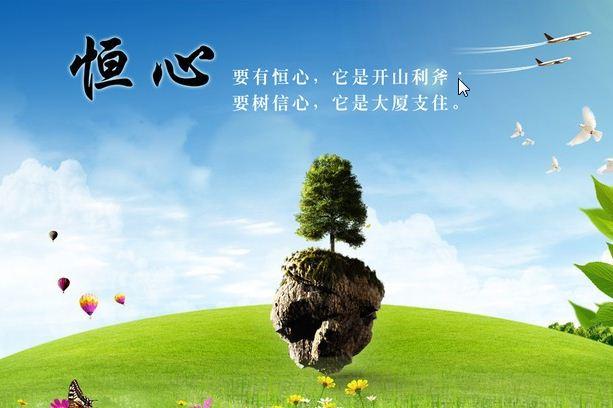
中国节日的英文故事
在中国有许多节日,关于这些节日背后的故事你都知道吗?下面我
们为大家带来中国节日的英语故事,欢迎学习和阅读。
端午节
In the 5th day of the fifth month of the Chine lunar
calendar, it is the traditional Dragon Boat Festival in China, also
known as duyang, five and five. As early as the Zhou Dynasty,
there was a custom of "storing lanes and bathing in May 5th". But
today, many activities of Dragon Boat Festival are related to
commemorating Qu Yuan, a great Chine writer.
In the Warring States period, Chu and Qin scramble for
hegemony, and the poet Qu Yuan was highly valued by the king
of Chu. However, Qu Yuan's claim was oppod by the old official
of Shangguan doctor Jin Shang. He continued to slander Qu Yuan
in front of the king of Chu Huai, and the king of Chu Huai
gradually alienated Qu Yuan, and the ambitious Qu Yuan felt
much pain, and he was with a melancholy and indignation that
was difficult to suppress. He wrote the immortal poems such as
Li Sao and Tian Xiang. In 229 BC, Qin conquered eight cities in
Chu state, and then nt envoys to King Chu Huai to go to the
Qin state. Qu Yuan saw through the conspiracy of King Qin and
risked death into the palace to state his interests. Instead of
listening, Chu Huai Wang drove Qu Yuan out of Ying Du. When
King Chu Huai arrived at the meeting as scheduled, he was
imprisoned in Qin state. He was filled with regret and depression.
He died in Qin after three years. Soon after the king of Chu
defeated the king, he nt troops to attack the state of Chu. On
the way of exile, Qu Yuan heard the death of King Huai king and
the bad news of Ying City to break through.
The fishermen on the river and the people on the shore heard
that Dr. Qu Yuan threw himlf into the river and came to the river
to salvage the corp of Qu Yuan. (the custom later evolved into
a dragon boat race). In addition, the Dragon poured the realgar
wine into the river so that the animals could not be hurt. After a
long time, a faint dragon was floating on the surface of the water,
江上的渔夫和岸上的百姓,听说屈原大夫投江自尽,都纷纷来到
江上,奋力打捞屈原的尸体,(此风俗日后演变成赛龙舟)人们纷纷拿出
家中的粽子、鸡蛋投入江中,让鱼吃了就不会去咬屈大夫尸身。还有
郎中把雄黄酒倒入江中,以便药昏蛟龙水兽,使屈原大夫尸体免遭伤
害。过不了多久,水面上浮起了一条昏晕的蛟龙,龙须上还沾著一片
屈大夫的衣襟,人们就把这恶龙拉上岸,抽了筋,然後把龙筋缠在孩
子们的手、脖子上,又用雄黄酒抹七窍,有的还在小孩子额头上写上
一个“王”字,使那些毒蛇害虫都不敢来伤害他们。从此,每年五月
初——屈原投江殉难日,楚国人民都到江上划龙舟,投粽子,喝雄黄
酒,以此来纪念诗人,端午节的风俗就这样流传下来。
七夕
Legend has it that on this evening, Niulang, or the Cowherd,
and Zhinu, or the Weaving Maid, meet each other for their annual
tryst on a bridge formed by sympathetic magpies over the Milky
Way. If it happens to rain that night, a Chine elder might say it
is Zhinu weeping after meeting her husband Niulang on the
Milky Way.
传说每年农历7月7日的晚上,牛郎(牧牛人)和织女(编织女工)会
在由喜鹊搭建在银河之上的桥上重逢。如果那天下雨,中国的老人就
会告诉你,牛郎织女在银河两岸流泪。
This day ud to be commemorated as a festival for girls and
also for young people in love. As the story goes, there was once
a cowherd, Niulang, who lived with his elder brother and sister-
in-law. But his sister-in-law disliked and abud him, and the boy
was forced to leave home with only an old cow for company.
The cow, however, was a former god who had violated
celestial rules and had been nt to earth in bovine form. One
day he led Niulang to a lake where fairies came bathe on earth;
among them was Zhinu, the most beautiful girl and a skilled
amstress. The two fell in love at first sight and were soon
married. They had a son and a daughter, and their happy life was
held up as an example for hundreds of years in China.
Yet in the eyes of the Jade Emperor, the Supreme Deity in
Taoism, marriage between a mortal and a fairy was strictly
forbidden. He nt his empress to fetch Zhinu. Niulang grew
desperate when he discovered Zhinu had been taken back to
heaven. Driven by Niulangs miry, the cow told him to turn its
hide into a pair of shoes after it died.
The magic shoes whisked off Niulang, who carried his two
children in baskets strung from a shoulder pole, off on a cha
after the empress. The pursuit enraged the empress, who took
her hairpin and slashed it across the sky, creating the Milky Way
which parated husband from wife. But all was not lost. An army
of magpies, moved by their love and devotion, formed a bridge
across the Milky Way to reunite the family. Even the Jade
Emperoor was touched and allowed Niulang and Zhinu to meet
once a year on the venth night of the venth month. It is said
that at that night, children can hear the private conversation
between the Weaving Maid and the Cowherd under the grape
trellis. This is how Qixi came to be.
In actuality, the festival can be traced back to the Han
Dynasty (206 BC-AD 220). People would traditionally look up at
the sky and spot a bright star in the constellation Aquila, as well
as the star Vega, identified as Niulang and Zhinu. The two stars
shine on opposite sides of the Milky Way.
Qixi is also known as the "Begging for Skills Festival" or
"Daughters Festival." In the past, girls would hold ceremonies on
the day and pray to Zhinu for wisdom, dexterity and a satisfying
marriage. In some parts of Shandong Province, young women
would offer fruit and pastries to her in return for a blessing of
intelligence. If spiders were en to weave webs on sacrificial
objects, it was believed that Zhinu was offering positive feedback.
In other parts of China, the custom was for ven clo friends to
gather to make dumplings. They would put into three parate
dumplings a needle, a copper coin and a red date, which
reprented perfect needlework skills, good fortune and an early
marriage respectively.
Young women in southern China wove small handicrafts with
colored paper, grass and thread. Weaving and needlework
competitions would be held to e who had the best hands and
the brightest mind, prerequisites for being a good wife and
mother.
However, the ancient traditions and customs have been
slowly dying out. Fewer people than ever gaze at the heaven on
that day to pick out the two stars shining bright on either side of
the Milky Way -- that is, if they even know on which day Qixi falls.
七夕坐看牵牛织女星,是民间的习俗,相传,在每年的这个夜晚,
是天上织女与牛郎在鹊桥相会之时。织女是一个美丽聪明、心灵手巧
的仙女,凡间的妇女便在这一天晚上向她乞求智慧和巧艺,也少不了
向她求赐美满姻缘,所以七月初七也被称为乞巧节。
人们传说在七夕的夜晚,抬头可以看到牛郎织女的银河相会,或
在瓜果架下可偷听到两人在天上相会时的脉脉情话。
女孩们在这个充满浪漫气息的晚上,对着天空的朗朗明月,摆上
时令瓜果,朝天祭拜,乞求天上的女神能赋予她们聪慧的心灵和灵巧
的双手,让自己的针织女红技法娴熟,更乞求爱情婚姻的姻缘巧配。
过去婚姻对于女性来说是决定一生幸福与否的终身大事,所以,世间
无数的有情男女都会在这个晚上,夜静人深时刻,对着星空祈祷自己
的姻缘美满。
春节
The Chine New Year is now popularly known as the
SpringFestival becau it starts from the Begining of Spring (the
first of the twenty-four terms incoodination with the changes of
Nature)。 Its origin is too old to be traced. Severalexplanations
are hanging around. All agree, however, that the word Nian,
which in modernChine solely means year, was originally the
name of a monster beast that started to prey onpeople the night
before the beginning of a new year.
One legend goes that the beast Nian had a very big mouth
that would swallow a great manypeople with one bite. People
were very scared. One day, an old man came to their rescue,
offering to subdue Nian. To Nian he said, I hear say that you are
very capable, but can youswallow the other beasts of prey on
earth instead of people who are by no means of yourworthy
opponents? So, it did swallow many of the beasts of prey on
earth that alsoharrasd people and their domestic animals from
time to time.
After that, the old man disappeared riding the beast Nian.
He turned out to be an immortalgod. Now that Nian is gone and
other beasts of prey are also scared into forests, peoplebegin
to enjoy their peaceful life. Before the old man left, he had told
people to put up redpaper decorations on their windows and
doors at each year's end to scare away Nian in ca itsneaked
back again, becau red is the color the beast feared the most.
From then on, the tradition of obrving the conquest of
Nian is carried on from generation togeneration. The term Guo
Nian, which may mean Survive the Nian becomes today
Celebratethe (New) Year as the word guo in Chine having both
the meaning of pass-over andobrve. The custom of putting up
red paper and firing fire-crackers to scare away Nian shouldit
have a chance to run loo is still around. However, people
today have long forgotten whythey are doing all this, except
that they feel the color and the sound add to the excitement
ofthe celebration.
相传,在古时候,有个名叫万年的青年,看到当时节令很乱,就
有了想把节令定准的打算。但是苦于找不到计算时间的方法,一天,
他上山砍柴累了,坐在树阴下休息,树影的移动启发了他,他设计了
一个测日影计天时的晷仪,测定一天的时间,后来,山崖上的滴泉启
发了他的灵感,他又动手做了一个五层漏壶,来计算时间。天长日久,
他发现每隔三百六十多天,四季就轮回一次,天时的长短就重复一遍。
当时的国君叫祖乙,也常为天气风云的不测感到苦恼。万年知道
后,就带着日晷和漏壶去见皇上,对祖乙讲清了日月运行的道理。祖
乙听后龙颜大悦,感到有道理。于是把万年留下,在天坛前修建日月
阁,筑起日晷台和漏壶亭。并希望能测准日月规律,推算出准确的晨
夕时间,创建历法,为天下的黎民百姓造福。
有一次,祖乙去了解万年测试历法的进展情况。当他登上日月坛
时,看见天坛边的石壁上刻着一首诗:
日出日落三百六,周而复始从头来。
草木枯荣分四时,一岁月有十二圆。
知道万年创建历法已成,亲自登上日月阁看望万年。万年指着天
象,对祖乙说:“现在正是十二个月满,旧岁已完,新春复始,祈请
国君定个节吧”。祖乙说:“春为岁首,就叫春节吧”。据说这就是
春节的来历。
冬去春来,年复一年,万年经过长期观察,精心推算,制定出了
准确的太阳历,当他把太阳历呈奉给继任的国君时,已是满面银须。
国君深为感动,为纪念万年的功绩,便将太阳历命名为“万年历”,
封万年为日月寿星。以后,人们在过年时挂上寿星图,据说就是为了
纪念德高望重的万年。

本文发布于:2023-11-28 05:06:08,感谢您对本站的认可!
本文链接:https://www.wtabcd.cn/zhishi/a/1701119168228698.html
版权声明:本站内容均来自互联网,仅供演示用,请勿用于商业和其他非法用途。如果侵犯了您的权益请与我们联系,我们将在24小时内删除。
本文word下载地址:中国节日的英文故事.doc
本文 PDF 下载地址:中国节日的英文故事.pdf
| 留言与评论(共有 0 条评论) |